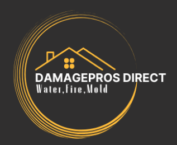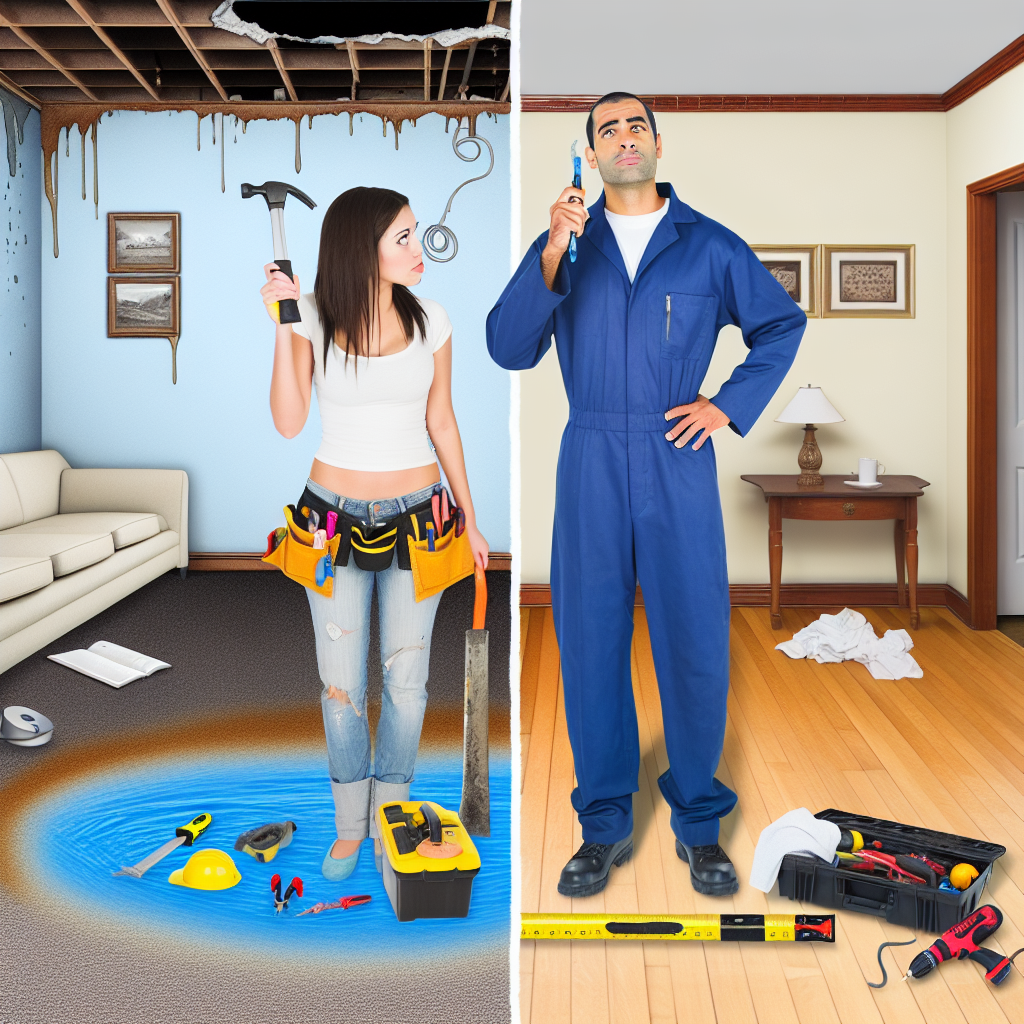DIY vs. Professional Water Damage Restoration: What You Need to Know
Water damage is a homeowner’s nightmare. Whether it’s from a burst pipe, heavy rain, or a leaking roof, water can cause serious issues if not addressed quickly. Left untreated, it can lead to expensive repairs, mold growth, and even structural damage.
If you live in Charlotte, NC, you may be wondering: should you try to fix the problem yourself or hire a professional? Which option is best for your situation?
This guide will break down the key differences between DIY water damage restoration and professional restoration services, helping you make an informed decision.
Understanding Water Damage
Water damage isn’t just about visible water. Moisture can seep into walls, floors, and furniture, causing long-term damage. To handle it properly, you need to understand its causes and risks.
Common Causes of Water Damage
- Plumbing leaks from burst pipes, dripping faucets, or broken appliances
- Storm-related flooding from heavy rain or hurricanes, which are common in Charlotte
- Roof leaks from missing shingles or clogged gutters
- HVAC issues that cause excess water buildup
- Sewage backups, which contain harmful contaminants and require immediate attention
Types of Water Damage
- Clean Water (Category 1) – Comes from sources like a broken sink pipe or rainwater.
- Gray Water (Category 2) – Slightly dirty water from appliances like dishwashers or washing machines.
- Black Water (Category 3) – Highly contaminated water from sewage or floodwaters.
What Happens If You Ignore Water Damage?
- Mold can start growing in as little as 24 to 48 hours.
- Walls, floors, and ceilings can weaken and deteriorate.
- Water can damage electrical outlets, increasing the risk of fire.
- Breathing in mold spores can cause allergies or other health issues.
DIY Water Damage Restoration
If you’re considering handling water damage yourself, here are some important factors to keep in mind.
Pros of DIY Water Damage Restoration
- Saves money – No need to pay for professional services if the damage is minor.
- Quick response – You can start cleaning up immediately without waiting for a technician.
- Works for small spills – Minor leaks or small amounts of standing water can often be dried with fans and towels.
Cons of DIY Water Damage Restoration
- Limited equipment – Without moisture meters and industrial dryers, it’s hard to remove all the water.
- Hidden water damage – Moisture can soak into walls and floors, leading to mold growth.
- Health risks – If the water is contaminated, it can contain bacteria and cause illness.
- Incomplete drying – If moisture remains, long-term damage could be even more costly.
When Is DIY Restoration Enough?
- If the water is clean (Category 1) and hasn’t soaked into the walls or flooring.
- If it’s a small, contained area that isn’t spreading.
- If you have the right tools, such as fans and dehumidifiers, to ensure proper drying.
⚠ Warning: If water has soaked into carpets, drywall, or wooden floors, professional help is recommended to prevent long-term damage.
Professional Water Damage Restoration
A professional restoration company, like DamagePros Direct in Charlotte, NC, has the experience and equipment to thoroughly remove water and restore your home.
Pros of Hiring a Professional
- Expert inspection – Professionals use advanced tools to detect hidden water damage.
- Heavy-duty equipment – Industrial fans, dehumidifiers, and air scrubbers speed up the drying process.
- Mold prevention – Professionals treat affected areas to prevent mold and bacteria growth.
- Help with insurance claims – Many companies assist with documenting damage for insurance purposes.
- Faster cleanup – A trained team can complete the restoration much more efficiently.
Cons of Hiring a Professional
- Higher initial cost – Professional services may cost more upfront but can prevent expensive future repairs.
- Scheduling delays – If demand is high during storm season, you might have to wait for an appointment.
- Less control – Some homeowners prefer to oversee the cleanup process themselves.
When Should You Call a Professional?
- If the damage covers multiple rooms or is more than just surface-level.
- If the water is Category 2 or 3 (gray or black water) and may contain bacteria.
- If you see mold or smell musty odors, which means moisture is trapped inside walls or floors.
- If drywall, wood, or electrical outlets have been damaged by water.
🔹 Tip: Charlotte’s humid climate allows mold to grow quickly. If water isn’t removed within 24 hours, professional help is highly recommended.
DIY vs. Professional: Which Is the Best Choice?
| Factor | DIY Cleanup | Professional Cleanup |
|---|---|---|
| Cost | Cheaper upfront | Higher cost, but prevents future damage |
| Effectiveness | Limited to small areas | Complete drying and damage repair |
| Safety | Can be risky with contaminated water | Safe handling by trained experts |
| Time Required | Can take longer | Faster and more efficient |
| Mold Risk | High if moisture remains | Low due to professional drying techniques |
Final Thoughts & Recommendations
- For Small Leaks & Minor Water Damage: DIY can be an option if the water is clean and dried quickly.
- For Major Water Damage or Flooding: Professional restoration is the best choice to prevent mold and structural damage.
- If Water is Contaminated (Category 2 or 3): Always call professionals to ensure safety.
- Act Fast: Mold can start growing within 24 hours—don’t wait!
Need Water Damage Restoration in Charlotte, NC?
At DamagePros Direct, our expert team is available 24/7 for water damage emergencies. We provide fast, professional restoration services to protect your home and prevent long-term damage.
📞 Call now: [Your Phone Number] for immediate assistance!
💧 Want a free consultation? Click [here] to get started.
Water damage cleanup isn’t something to take lightly. Whether you decide to tackle it yourself or hire a professional, acting quickly is the key to preventing further damage. If you’re facing water damage in Charlotte, NC, let DamagePros Direct help you restore your home. Call us today! 🚨

